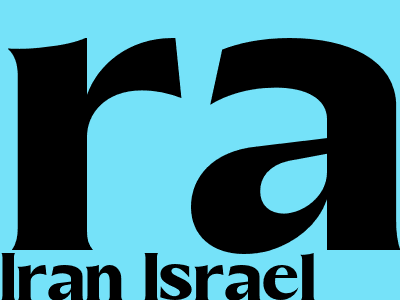
Iran-Israel Conflict: A Historical Perspective
A Longstanding Rivalry
The rivalry between Iran and Israel dates back decades, rooted in historical, political, and religious differences. Both nations have been at odds since the establishment of the State of Israel in 1948, which Iran has consistently opposed. This opposition stems from ideological differences, with Iran viewing Israel as a foreign entity in the Middle East. Iran supports the Palestinian cause and considers Israel an occupier of Palestinian territories.Furthermore, Iran's Shi'a Islamic government sees Israel's predominantly Jewish population as a threat to their regional influence. This perception of Israel as a threat has contributed to decades of animosity and conflict between the two nations.
Proxy Wars and Tensions
The Iran-Israel rivalry has manifested in proxy wars and tensions in various regional conflicts. Iran has provided support to Hezbollah, a Lebanon-based militant group, which has engaged in armed conflict with Israel on multiple occasions. Additionally, Iran has backed Hamas, a Palestinian militant group that controls the Gaza Strip. These proxy wars have escalated tensions between Iran and Israel, leading to military clashes and diplomatic crises.
Nuclear Development and International Concerns
In recent years, Iran's nuclear program has become a major source of contention between Iran and Israel. Israel views Iran's nuclear ambitions as a threat to its security, fearing that Iran could develop nuclear weapons. Iran, however, maintains that its nuclear program is for peaceful purposes and rejects allegations that it seeks to develop nuclear weapons.
International efforts to resolve the conflict
The international community has been involved in efforts to resolve the Iran-Israel conflict. The Joint Comprehensive Plan of Action (JCPOA), commonly known as the Iran nuclear deal, was reached in 2015 between Iran and six world powers, including the United States. The deal aimed to limit Iran's nuclear program in exchange for the lifting of economic sanctions.
However, the deal has faced criticism from Israel, which opposed the agreement, arguing that it did not adequately address Iran's nuclear capabilities. The United States withdrew from the JCPOA in 2018, further escalating tensions between Iran and Israel.
Conclusion
The Iran-Israel conflict remains a complex and unresolved issue in the Middle East. Historical, political, and religious differences have fueled decades of animosity between the two nations. Proxy wars, tensions over Iran's nuclear program, and international efforts to resolve the conflict have shaped the dynamics of this long-standing rivalry. As the conflict continues to evolve, it has significant implications for regional stability and global security.